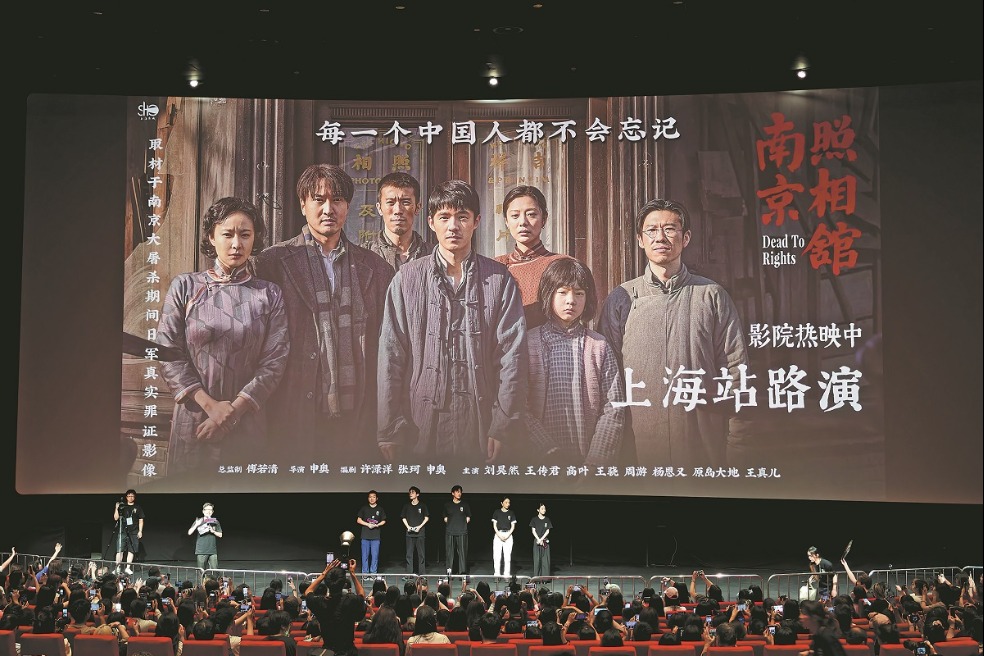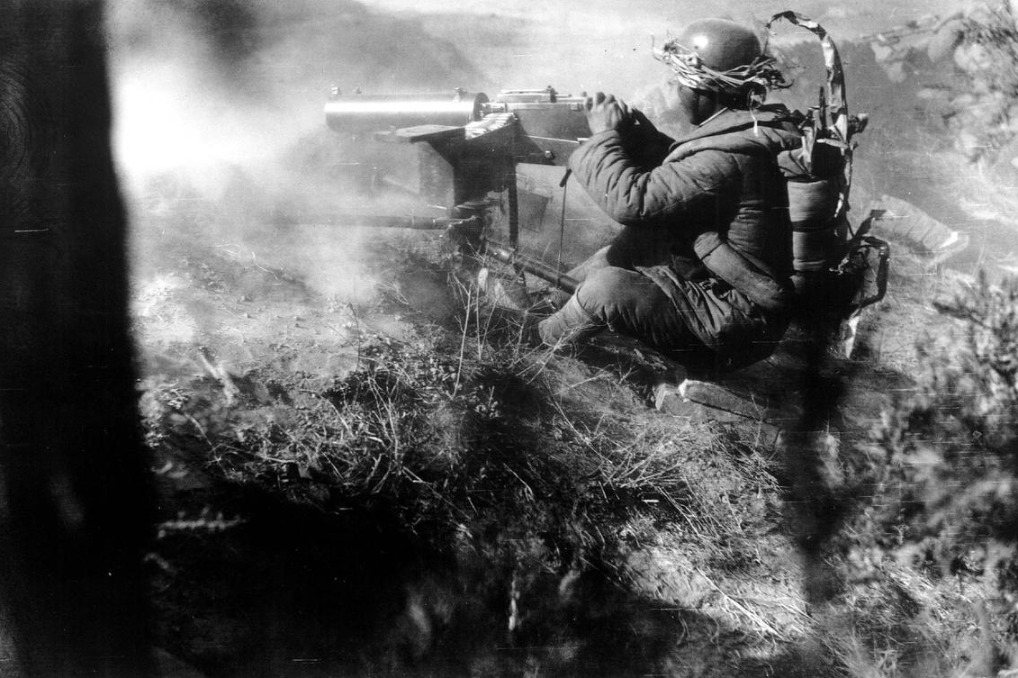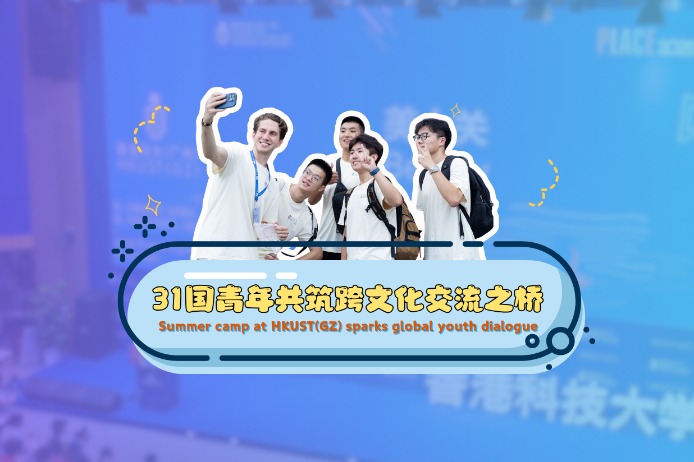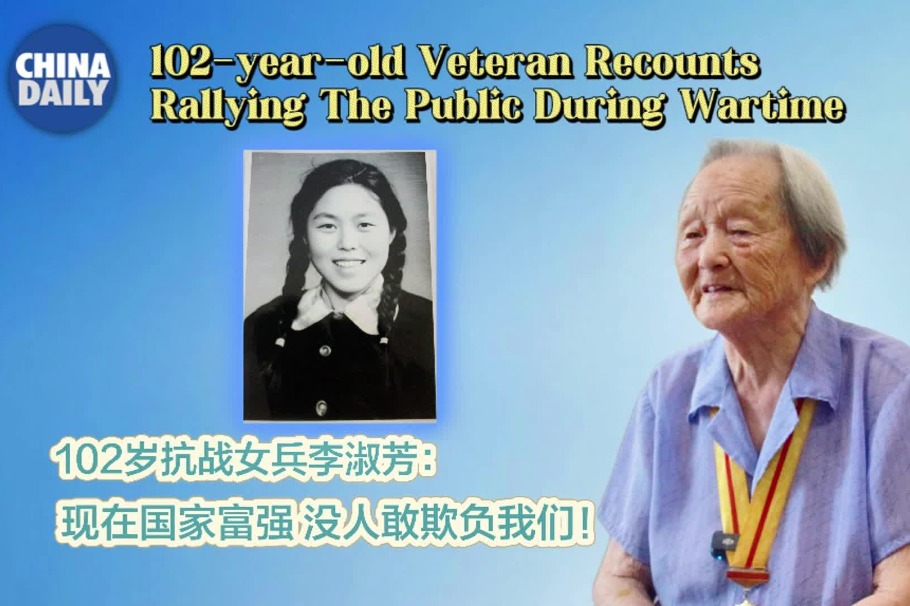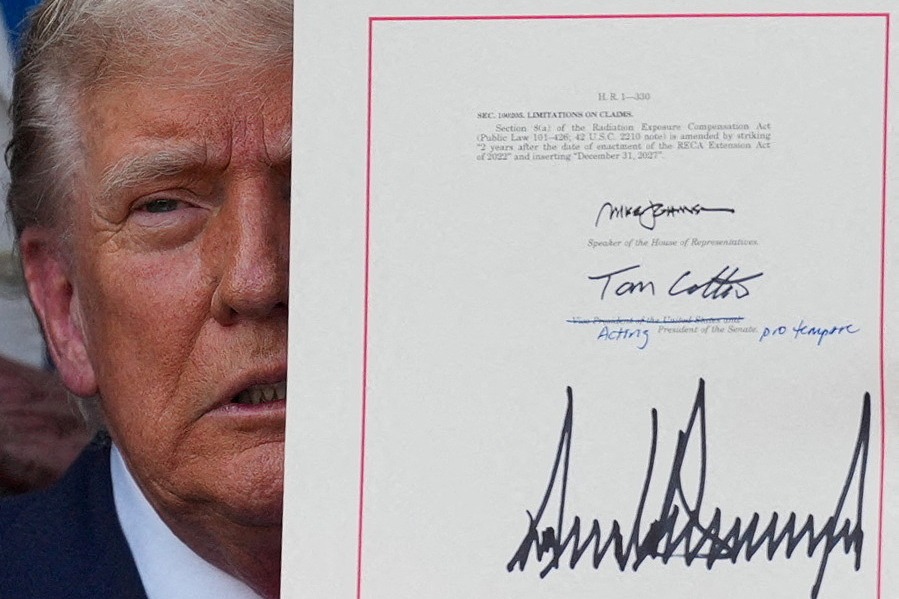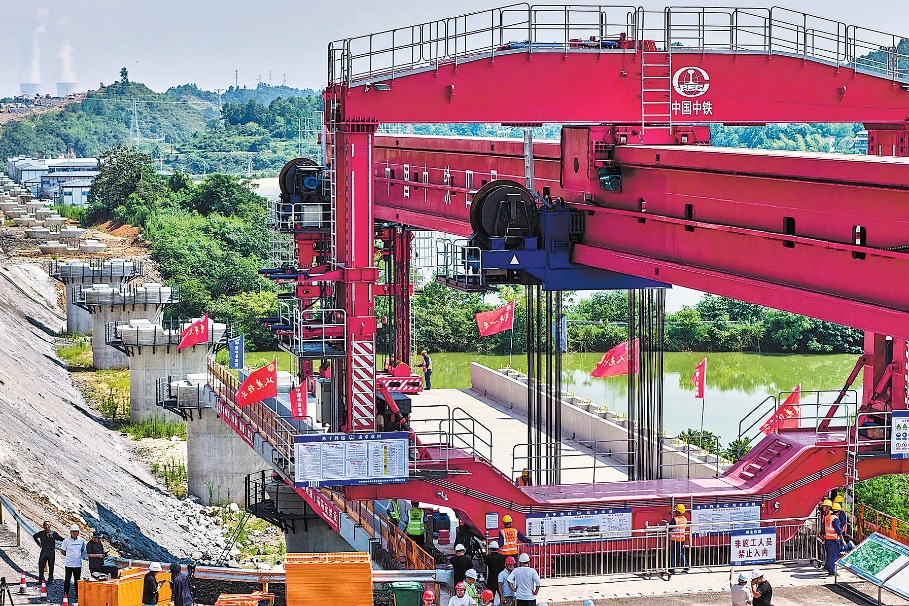Photo inspires focus on artist
Peking Opera production to honor Qi Baishi looks at critical decade in his life, Chen Nan reports.

One day in 1955, Peking Opera master Mei Lanfang (1894-1961) was shooting a documentary directed by Wu Zuguang (1917-2003) about Mei's stage art in Beijing. In the middle of filming, Mei's friend, Qi Baishi (1864-1957) paid a visit. They talked for a while and took a photo together, in which Mei, still wearing his makeup and costume, smiled and stood next to the white-bearded Qi.
The black-and-white photo is on display at Beijing Fine Art Academy, which is home to about 2,000 art pieces by Qi — one of the biggest collections of the established artist's works. Qi served as the first honorary president of the Beijing Fine Art Academy, when it was founded in 1957. After he passed away, Qi's family donated a number of his works and collections to the academy.
The photo also became the start of the collaboration between the Beijing Fine Art Academy and the Jingju Theatre Company of Beijing, which is dedicated to performing and preserving the 200-year-old art form that is Peking Opera, also known as jingju.
The new Peking Opera production, titled Qi Baishi, was premiered in the capital on Dec 16, marking the 160th anniversary of Qi's birth, which falls in 2024.
"Qi Baishi and Mei Lanfang were close friends. They appreciated each other's art. When we prepared for the celebration of the 160th anniversary of Qi's birth, we wanted to commemorate the artist from a new perspective. The photo inspired us," says Wang Ya'nan, director of the art museum of the Beijing Fine Art Academy, adding that the project started in 2020.
The Peking Opera production follows Qi's life between 1919 and 1929, which was a critical period of time of the artist's career. Peking Opera actors Zhang Jianfeng and Li Hongtu play the roles of Qi and Mei, respectively.
Born in Xiangtan, Hunan province, to a farmer's family, Qi began a career as a carpenter. Despite his humble beginnings, Qi learned painting and poetry. Between 1902 and 1909, on the invitation of friends, he traveled around China, visiting famous scenic spots and was inspired by nature and landscapes. He also met more Chinese artists and appreciated great works of art. That experience widely broadened his horizons and, after that, he devoted himself entirely to painting.
In 1919, Qi settled down in Beijing for the rest of his long life of 93 years.
"With this Peking Opera production, we tell Qi's story from 1919 to 1929. One reason is that around 1920, Qi met Mei, beginning their long friendship," says scriptwriter Ren Yongxin.
"Another reason is that, during that period of time, Qi slowly shifted his artistic focus to his own style, as advised by his artist friend Chen Shizeng. He moved away from gongbi style painting, which he learned in his early artistic career, and worked on a more unique, xieyi type of painting."
Gongbi is where details of the subject are captured by brush-strokes and very precisely delineated, without independent or expressive variation. Xieyi, on the other hand, is a technique that features a reduction in detailed brush-strokes and is an expressive style where artists find more freedom to paint. Xieyi captures the spirit of the subject spontaneously, which requires great experience to execute well.
"It's called 'later-year innovations' to describe Qi's transition of art style. He was in his 50s, when it was not easy for a mature artist to do so," the scriptwriter says. Since 2020, Ren has revised the script about seven times.
Fish, shrimp, crabs, and plants were among Qi's favorite subjects. He created works in a fresh and lively style that expressed his love of nature and life. In 1953, he was awarded the title of Outstanding Artist of the Chinese People by the government. In 1956, the World Peace Council gave the International Peace Award to Qi.
"Peking Opera is also an art form of xieyi because it's simplistic and expressive just like the xieyi approach of painting," says Fu Yongfan, the Peking Opera production's director. "On the stage, which usually has a minimalist set, Peking Opera performers use their techniques, such as singing, dancing and body language, to attract audiences with an aesthetic between the real and imaginary."
Peking Opera was recognized as an Intangible Cultural Heritage of Humanity by UNESCO in 2010. It brings together art forms such as singing, dancing, martial arts and acrobatics.
The director adds that when it comes to portraying the inner struggle of Qi about changing his art style from gongbi to xieyi, two characters appear onstage to symbolize two different voices in Qi's head.
"We used huadan (young, lively female characters) and wuchou (comedy, martial arts characters) to personify the two different voices — one attempts to persuade Qi to maintain his original style, while the other tries to push him to pursue a new direction," the director says.
Veteran Peking Opera composer Zhu Shaoyu wrote music for the Peking Opera production. He says that the music brings a sense of warmth and humor, just like Qi's paintings.
"We opened the production with a popular children's song and the melody of the song runs through the whole show from time to time," says Zhu, adding that elements of Jingyun Dagu (storytelling in Beijing dialect with drum accompaniment) are featured in the production.
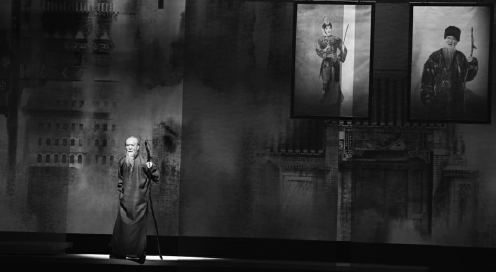
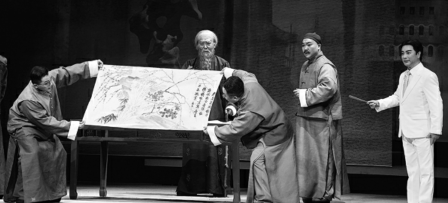
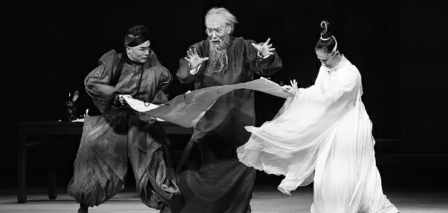
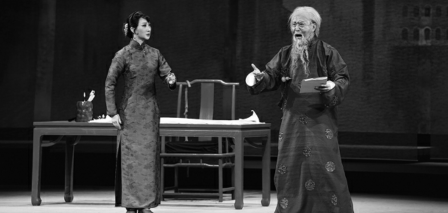
Today's Top News
- Japan must face up to its wartime past
- Vision turns county into green model
- China rolls out new visa type for young science talent
- Cambodia, Thailand urged to engage in dialogue, rebuild trust
- China stays at forefront of global digital growth
- Beautiful China vision has sown the seeds for the blossoming of an ecological civilization: China Daily editorial
















